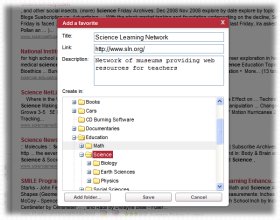|
Education
Web
Viewing 1-1 of 1 total results
Kate Bayliss and Tim Kessler 15 Privatisation proponents m aintain that all basic services can be im proved through increased form s of com petition. In the case of utilities, they argue that com petition in the bidding process itself helps reduce utility prices for consum ers. In...
1
0
Kate Bayliss and Tim Kessler 15 Privatisation proponents m aintain that all basic services can be im proved through increased form s of com petition. In the case of utilities, they argue that com petition in the bidding process itself helps reduce utility prices for consum ers. In the case of health care, education, and electricity generation, privatisation advocates argue that consum ers benefit from direct com petition: low barriers to entry and the ability to choose am ong m ultiple
14
0
http://www.undp-povertycentre.org/pub/IPCWorkingPaper22.pdf#page=14
www.undp-povertycentre.org/pub/IPCWorkingPaper22.pdf#page=14
12 International Poverty Centre W orking Paper nº 22 profitability for private generators, and can expose governm ents to huge fiscal risks and losses that cannot be restructured through re-negotiation. In other words, PPAs can virtually elim inate the prospect of <span class="highlight">com</span> m ercial risk. For exam ple, a case study of energy sector reform in Bangladesh concludes: “From a policy perspective, such long term contractual obligations, especially overly-generous ones, are an inadequate substitute for a proper
16
0
http://www.undp-povertycentre.org/pub/IPCWorkingPaper22.pdf#page=16
www.undp-povertycentre.org/pub/IPCWorkingPaper22.pdf#page=16
for-profit private sector are involved in unnecessary procedures, such as high rates of caesarian sections, unwarranted tests and surgeries (W orld Bank 2004). In the water sector, regulators are usually unable to <span class="highlight">com</span> pel firm s to disclose inform ation about perform ance or prices. Yet without such data, it is not possible to verify, for exam ple, if cost-based tariff increases are justified. In G abon, the regulator found it difficult to m onitor the activities of the private operator: “In the absence
17
0
http://www.undp-povertycentre.org/pub/IPCWorkingPaper22.pdf#page=17
www.undp-povertycentre.org/pub/IPCWorkingPaper22.pdf#page=17
Kate Bayliss and Tim Kessler 15 Privatisation proponents m aintain that all basic services can be im proved through increased form s of <span class="highlight">com</span> petition. In the case of utilities, they argue that <span class="highlight">com</span> petition in the bidding process itself helps reduce utility prices for consum ers. In the case of health care, education, and electricity generation, privatisation advocates argue that consum ers benefit from direct <span class="highlight">com</span> petition: low barriers to entry and the ability to choose am ong m ultiple
21
0
http://www.undp-povertycentre.org/pub/IPCWorkingPaper22.pdf#page=21
www.undp-povertycentre.org/pub/IPCWorkingPaper22.pdf#page=21
Kate Bayliss and Tim Kessler 19 The challenges of creating well-functioning electricity generation m arkets are dem onstrated m ost powerfully in developed countries, where regulatory institutions are m ore experienced and have far greater financial and personnel resources than in poor ones. According to the U S N ational <span class="highlight">Com</span> m ission on Energy Policy, “Electric industry restructuring [in the U S] has derailed. The m assive blackout of August 14, 2003 certainly was not needed to underscore the
35
0
http://www.undp-povertycentre.org/pub/IPCWorkingPaper22.pdf#page=35
www.undp-povertycentre.org/pub/IPCWorkingPaper22.pdf#page=35
term s of quantity of docum entation, but in term s of accessibility to regular citizens. Contrary to popular slogans, inform ation is not always power. Service providers that do not wish to be scrutinized m ight respond to inform ation requests by dum ping m ountains of data on the public, which can confuse or intim idate citizens and m ake action difficult. Inform ation about utilities in its purest form – raw data – will not be <span class="highlight">com</span> prehensible to m ost people. Efforts to synthesize, abridge and
39
0
http://www.undp-povertycentre.org/pub/IPCWorkingPaper22.pdf#page=39
www.undp-povertycentre.org/pub/IPCWorkingPaper22.pdf#page=39
or private, there is no substitute for political <span class="highlight">com</span> m itm ent to dedicate public resources toward these groups. Perhaps m ore im portantly than their econom ic weaknesses, <span class="highlight">com</span> m ercialisation and privatisation reduce the political pressure on governm ent leaders to take seriously the need to equitably allocate budgetary resources. W hen user fees contribute to self-financing or a long-term concession sim ply transfers responsibility from the State to a private <span class="highlight">com</span> pany, politicians are no longer
|
